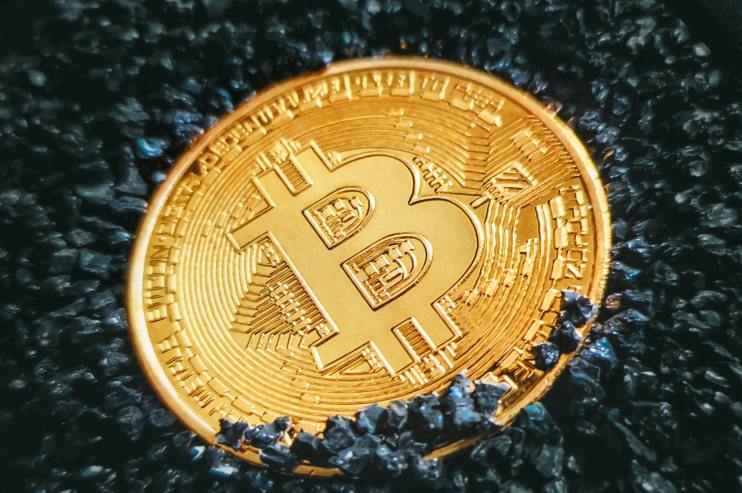Bitcoin mining booms in US, crypto bank sues Federal Reserve, while ‘hodler’ losses mount

Data from CryptoCompare shows that the price of Bitcoin started last week testing the resistance at $30,000 but fell sharply throughout it to ultimately dip below the $25,000 mark after a crypto lender halted withdrawals and over wider macroeconomic factors.
Ethereum’s Ether, the second-largest cryptocurrency by market capitalization, saw a sharp move downward as well, plunging from $1,800 to around $1,250 at the time of writing. ETH’s losses saw it drop below its 2017 high above $1,400.
Headlines in the cryptocurrency space this week focused on a cryptocurrency mining boom in the United States, which has been drawing increasing attention from regulators. The Bitcoin network’s mining hashrate plunged roughly a year ago after a mining ban in China forced miners to move out of the country.
Over the past year, BTC miners have been spreading around the world, and 38% of the power behind the network has moved to the United States, making it the world leader.
The White House is reportedly working on a report on cryptocurrency mining and the environment, which will among various questions consider the potential mining operators have on stabilizing electric grids.
Cryptocurrency miners are incentivized to find the cheapest energy sources available.Several cryptocurrency mining firms have made partnerships with natural gas producers and electricity providers to take advantages of excess energy to mine crypto.
While the US is seemingly embracing cryptocurrency miners, this week crypto bank Custodia filed a lawsuit against the US Federal Reserve saying the central bank has unlawfully delayed a decision on its application for a master account, which it says is “critical” to its business.
Per the crypto bank, a master account would “allow Custodia to directly access the Federal Reserve, rather than going through an intermediary bank. The lawsuit stated the Federal Reserve’s own documentation says “a master account decision” ordinarily takes 5-7 business days,” The bank has been waiting for 19 months.
Retailer adoption is growing exponentially in the U.S. too, as Deloitte’s “Merchants Getting Ready For Crypto” report, which was released in a collaboration with PayPal, found that 75% of retailers in the United States are reportedly planning to accept cryptocurrency or stablecoin payments within two years.
The survey polled 2,000 senior executives at U.S. retail organizations late last year, when cryptocurrency prices were far higher. Respondents were distributed equally among various industries including cosmetics, digital goods, electronics, fashion, food and beverage, personal and household goods, and services.
It’s also worth mentioning that the U.S. Securities and Exchange Commission (SEC) is investigating whether leading cryptocurrency exchange Binance broke securities rules by selling its BNB token during its initial coin offering (ICO) five years ago.
PayPal starts letting users move crypto to external wallets
PayPal is now letting cryptocurrency holders on its platform transfer their digital assets to external cryptocurrency wallets and exchanges.
The feature was the most requested one the fintech giant saw ever since it started letting users buy, sell and hold crypto in October 2020. On its platform users have access to Bitcoin, Ethereum, Bitcoin Cash, and Litecoin.
The new feature comes at a time in which long-term Bitcoin holders are sitting on their largest losses since March 2020 and the 2018-2019 bear market. The aggregated realized losses for long-term Bitcoin holders exceeded 0.006% of the market capitalization, with historic patterns suggesting losses may continue.
The cryptocurrency space has also been affected by scammers who, according to a report published by the Federal Trade Commission, have managed to take over $1 billion out of more than 46,000 people since the start of 2021, with losses last year being nearly 60 times what they were in 2018.
Notably, just this week an attacker managed to steal 20 million OP governance tokens after interfering in a token recovery process involving a market maker. The attacker is said to have returned most of the funds, and even sent some to Ethereum co-founder Vitalik Buterin.
South Korean Exchanges Delist Litecoin Over Privacy Features
South Korean cryptocurrency exchanges Upbit and Bithumb are delisting Litecoin, a cryptocurrency often referred to as the silver to Bitcoin’s gold, over a recent update that enables greater privacy when conducting transactions.
In their notices, both cryptocurrency exchanges revealed they were set to stop supporting Litecoin over its newly activated Mimblewimble Extension Blocks (MWEB) upgrade, which conflicts with South Korean anti-money laundering (AML) regulations.
MWEB enables users to conceal transaction data with its confidentiality features while providing a foundation to improve a token’s usability. Through MWEB, transactions are only known between the sender and receiver.
While exchanges deal with Litecoin’s new privacy features, TRON has moved to overcollateralize its USDD stablecoin after the collapse of the Terra ecosystem. The TRON DAO is using BTC. USDT, USDC, and TRX itself as collateral for the stablecoin.
Francisco Memoria is a content creator at CryptoCompare who’s in love with technology and focuses on helping people see the value digital currencies have. His work has been published in numerous reputable industry publications. Francisco holds various cryptocurrencies.